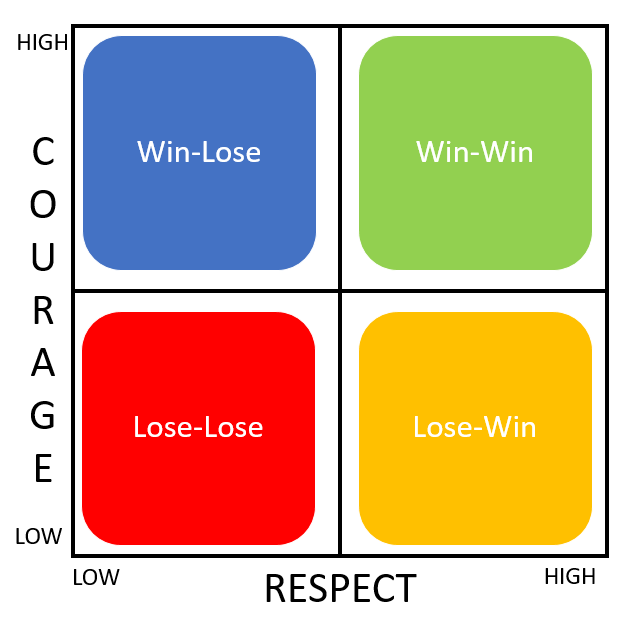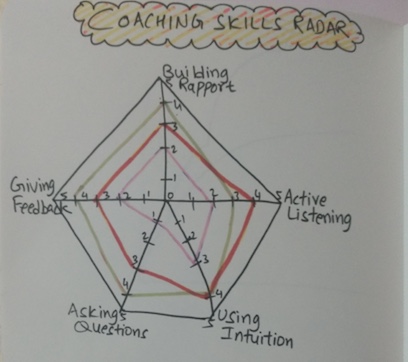"Your actions speak so loudly I can't hear your words." - Ralph Waldo Emerson
In one of my previous blog articles, I wrote about the Scrum Master journey through the different levels of influence to achieve greatness. In this blog, we will explore the number one skill I believe is needed for a Scrum Master (servant leader) to be effective in order to create change and impact a Scrum team and organization. Inspired by John C. Maxwell's book, Everyone Communicates, Few Connect, I am sharing with you some tools and tips that I have applied in the field working with people and teams.
In an important study, Albert Mehrabian, emeritus professor of psychology at UCLA, discovered that face-to-Face communication can be split into three components: (1) Words; (2) Tone of voice; (3) Body language. What we say accounts for 7%, the way we say it accounts for 38%, what others see accounts for 55%. These stats, however, don't help us to become better at connecting with others. Howard Hendricks says all communication has three essential components:
-
Thought-> Intellect: Something we know.
-
Feeling-> Emotion: Something we feel.
-
Action-> Volition: Something we do.
Understanding these components could help in exploring your communication attitude and persona:
-
Dispassionate: I know but I don't feel.
-
Theoretical: I know but I don't do.
-
Unfounded: I feel but don't know.
-
Hypocritical: I feel but don't do.
-
Presumptuous: I do but don't know.
-
Mechanical: I do but don't feel.
-
Connection: I know, I feel, and I do (my communication has conviction, passion, and credibility)
What kind of communicator are you? Which persona do you relate to the most? It is a great idea to introspect after every coaching conversation and ask yourself whether you were able to establish a connection. Here is a small technique to perform while doing your introspection/retrospection that can help you to determine how much of a connection you make with your coachee during your coaching conversation.
-
Did I do my best to communicate with my coachee? Integrity
-
Did I meet the expectation of my coachee? Expectation
-
Did I understand and relate to the coachee? Relevance
-
Did I add value to the coachee? Value
-
Did I make coachee feel accountable for their actions? Application
-
Did I make a difference? Change
A radar chart can be plotted on a scale of 1-5, with 1 being the least established connection and 5 being the highest level of connection established with your audience/coachee. This tool has helped me to become a better connector with the people I am working with. There can be many variations applied, for example, the Product Owner can do this activity to gauge his/her connection with Development Teams and Stakeholders. A Development Team could also do this group activity to assess how well they are able to connect with the Product Owner and Stakeholders. Questions could be adapted to meet the principle, " Connecting goes beyond words."
Another key aspect for Scrum Masters to remember is to practice "the habit of mutual benefit," inspired by Stephen Covey.
There is a lot of importance given to courage in Agile and Scrum; the whole idea of empiricism sits on it. I have often seen Scrum Masters and leaders start portraying a lot of courage when they start implementing Agile and Scrum. However, they often trade- off courage for respect leading to a win-lose situation. I have also seen people being more respectful and less courageous (typical case of the development team-Product Owner interaction- saying yes to whatever PO says), which leads to a lose-win situation. Hence, balancing courage and respect is a skill that Scrum teams need to master and the Scrum Master can help by modeling that behavior.
For the successful Scrum adoption, it is important to understand that Scrum values are not competing against each other, they complement each other, hence trading-off one for other is not a great idea. "Successful use of Scrum depends on people becoming more proficient in living Focus, Openness, Respect, Courage, Commitment."
Here is a simple tool that I use to inspect and adapt the balance between courage and respect.

This simply depicts that in order to have a win-win situation, both courage and respect need to be high. Think Win-Win in situations of conflict, building long term relationships and where people have interdependence. Scrum Values are like five fingers - if I ask you which finger do you want to trade-off for another, what would be your answer?
People who connect always look for a win-win situation/common ground, because all positive relationships are based on common values and principles. If this is true, then why do people struggle to search for common ground and build on it? Of course, we could create a big list, but these are the factors I consider to be of the utmost importance:
-
Assumptions: I already know what others know, feel, and need.
-
Arrogance: I don't need to know what others know, feel, and need.
-
Indifference: I don't care to know what others know, feel, and need.
-
Control: I don't want others to know what I know, feel, and need.
The good news is that becoming a great connector is a choice. This skill can be adopted by cultivating a common-ground mindset as defined by John C Maxwell in his book. Here are few of the choices that a Scrum Master can make to become a great connector.
-
Building Rapport: I will choose to spend time with the people and teams I work with.
-
Active Listening: I will listen with an intent to understand.
-
Ask Questions: I will be interested enough in others to ask questions.
-
Using Intuition: I will follow my inner calling. Intuition flows when you are fully present (mindful) in any given situation.
-
Feedback: I will care about people, provide constructive feedback and receive feedback with an open mind.

I often use this introspection plotting coaching radar and see where I stand with respect to the skills required to play the Scrum Master role effectively.
As a Scrum Master, we can learn to increase our influence in any situation by making a choice to learn. Start using the connecting principles and share your experience.
